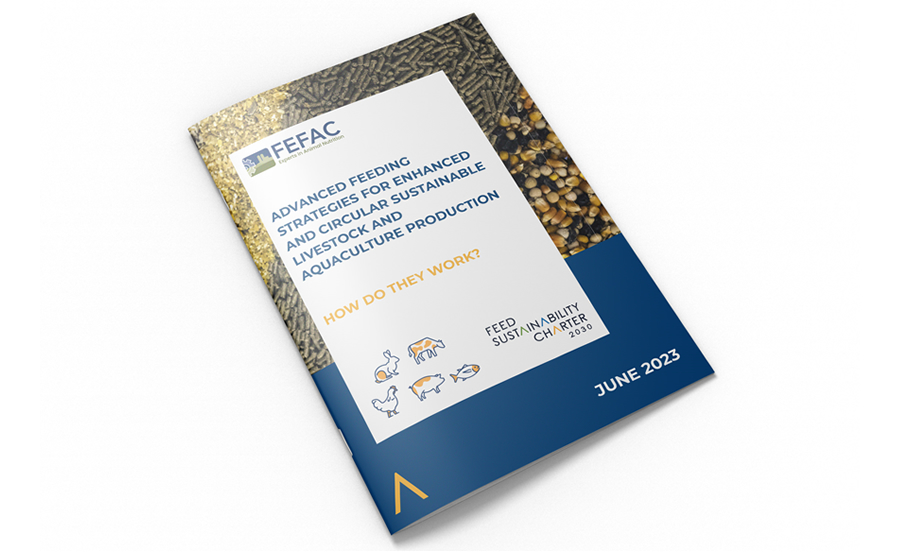June 14, 2023
FEFAC campaign focuses on benefits of better feeding strategies for sustainable livestock, aquaculture productions

FEFAC initiated an awareness campaign on the potential benefits of advanced feeding strategies for enhanced and circular, sustainable livestock and aquaculture productions.
The campaign's objective is to facilitate access to sound scientific-based information on relevant techniques, how they work for specific species and considerations on the economic impacts and trade-offs. Practical case studies showcasing existing animal feeding strategies are now available online on FEFAC's website.
The organisation decided to highlight the contribution of animal feeding strategies with a new publication, "Advanced animal feed strategies to support the transition towards more sustainable and circular livestock and aquaculture production". This publication focuses the five key ambitions detailed in the FEFAC Feed Sustainability Charter 2030.
The EU Green Deal, particularly the Farm to Fork Strategy, accelerated research to address key sustainability challenges, such as climate change, deforestation and animal health and welfare. Innovation is taking place at a fast pace and the number of scientific publications on animal nutrition is on the rise, according to FEFAC.
Additionally, emerging feeding techniques that enable the reduction of ammonia or methane emissions are now available in the marketplace. Likewise, a series of different dietary approaches can help to minimise the need for antibiotics or help to improve the welfare of animals.
However, the uptake of these advanced feeding techniques still faces some obstacles, FEFAC noted. Their potential to reduce the environmental impact of feed sourcing or digestion or to maintain the health status and enhance the welfare of livestock and aquaculture animals lacks visibility and these solutions remain consequently underrated. One illustration of this is the low level of uptake of dietary interventions in the design of the CAP National Strategic Plans by EU member states in 2023.
FEFAC president Asbjørn Børsting said: "It is high time for the feed industry to show and prove what animal nutrition can deliver to the livestock and aquaculture sectors for the green transition so that decision-makers and chain partners can evaluate and approve the investment potential of such feeding technologies in full confidence."
Fifteen years ago, a major issue for the livestock sector was the emissions of phosphorous, FEFAC said. However, with the use of phytase to improve digestibility of phosphorous in an animal's diet, the total amount of phosphorous in feed is reduced, thus reducing the emission of phosphorous. This development provides a clear track record of the ability of the feed industry to deliver in accordance with its societal commitments, FEFAC added.
Animal nutrition alone is not a silver bullet to address all challenges the livestock sector faces, the organisation noted. At the same time, pressure points on sustainability are very different depending on animal species. Nevertheless, FEFAC is convinced that the EU feed industry can greatly contribute to more sustainable livestock and aquaculture production, as it is committed to the Sustainability Charter 2030, FEFAC said.
Børsting said: "We want to show the decision makers, our chain partners and the public that there is a science-based alternative to having a narrow focus of simply bringing down the livestock population in the EU — which would only increase the EU's reliance on third country imports to feed itself with high-value livestock and aquaculture proteins."
- FEFAC










